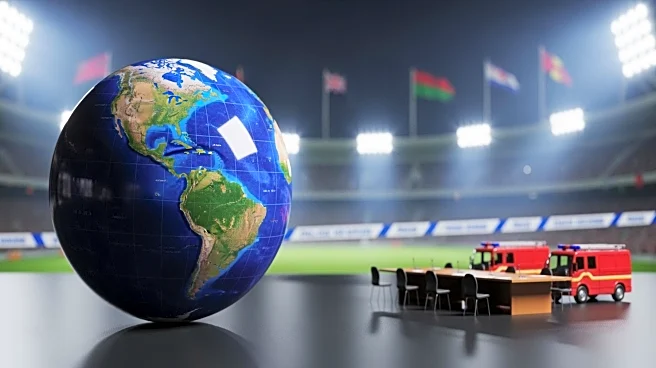What's Happening?
President Donald Trump has recently made statements suggesting the potential relocation of World Cup matches from certain U.S. cities he considers 'unsafe' and 'run by radical left lunatics.' These comments
were specifically directed at Boston and its mayor, Michelle Wu. The remarks have raised questions about Trump's authority to unilaterally move World Cup games. While FIFA, the governing body of the tournament, has the ultimate authority to relocate matches, it has not dispelled concerns about potential changes. FIFA's contracts with host cities allow for relocation under certain conditions, such as war or civil unrest. Trump's relationship with FIFA President Gianni Infantino, who has visited the White House, adds complexity to the situation.
Why It's Important?
The potential relocation of World Cup matches could have significant implications for the host cities, affecting local economies, tourism, and international relations. Cities like Boston, which are preparing to host matches, have invested heavily in infrastructure and planning. A move could disrupt these plans and lead to financial losses. Additionally, Trump's comments highlight the intersection of sports and politics, as decisions about the tournament could be influenced by political considerations. The situation underscores the importance of safety and security in international events and the role of government and sports organizations in ensuring these conditions.
What's Next?
As the World Cup approaches, it remains to be seen whether any matches will be relocated. FIFA and the host cities will need to address safety concerns and ensure that all necessary security measures are in place. Political leaders and city officials may engage in discussions with FIFA to reaffirm their commitment to hosting the games. The outcome of these discussions could influence the final decision on match locations. Fans and stakeholders will be closely monitoring developments, as any changes could impact travel plans and ticket sales.









